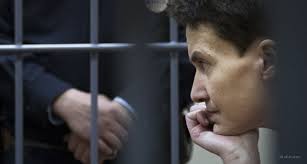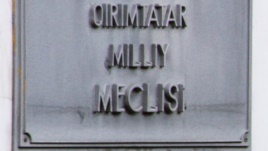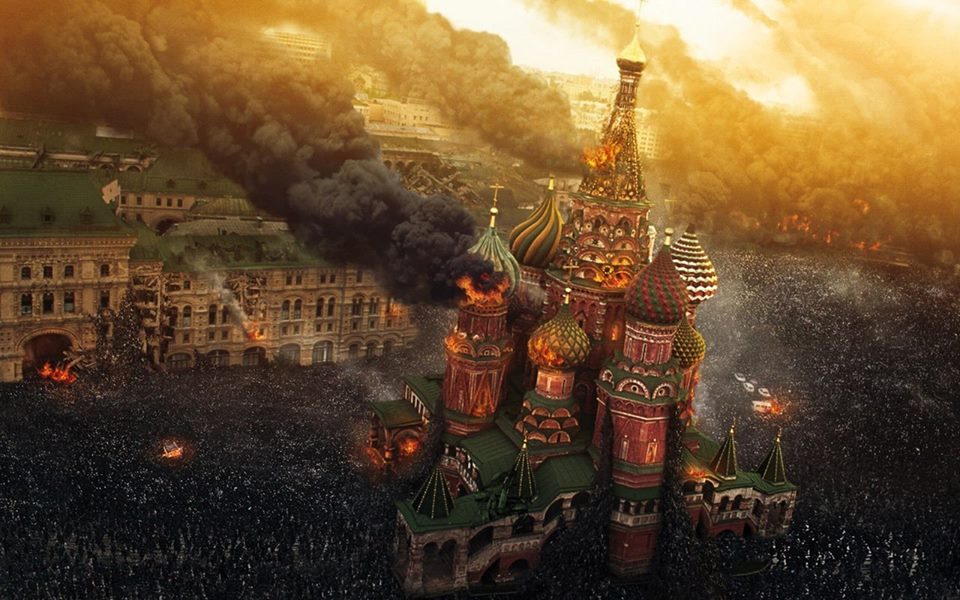By Mariana Budjeryn, Central European University

As Russia invades Crimea and looks poised for more, politicians have dusted off the 1994 Budapest Memorandum and called on Russia to respect the security assurances it gave Ukraine in exchange for the latter’s denuclearization. Yet what exactly are these security assurances worth and what mechanisms are available for their enactment?
In 1991, Ukraine inherited world’s third largest nuclear arsenal, consisting of 176 intercontinental ballistic missiles armed with over 1800 warheads as well as some 2600 tactical nuclear weapons, more than the UK and France had combined. Although operational control over these weapons remained in Moscow, Ukraine repeatedly laid claim to ownership of the nuclear weapons dislocated on it territory demanding compensation and security guarantees in exchange for surrendering them. At the time, it was accused of nuclear blackmail and backtracking on its commitments.
Indeed, prior to independence, in the 1990 Declaration of Sovereignty, Ukraine declared its intention to rid itself of Soviet nuclear weapons. This unilateral renunciation was predicated on the anti-nuclear sentiment spurred by the Chernobyl disaster. Ukraine’s pro-independence politicians also realized that the West was reluctant to support Ukraine’s independence precisely for the fear that Soviet disintegration would result in a “Yugoslavia with nukes,” as Secretary of State James Baker put it.
After August 1991 coup d’etat in Moscow, the Soviet Union was suddenly no more. Yeltsin promised that the new Russian Federation would not dominate its neighbors and will be “an equal among equals.” Yet Ukraine’s leadership was apprehensive that the Russian monopoly on nukes in the former Soviet space would confer on it a special status ultimately resulting in the resurgence of its imperialist ambitions.
Therefore, Ukrainian politicians took a more cautious stance toward their nuclear inheritance. They claimed that Ukraine was the rightful owner of the nuclear arsenal as a successor of the USSR on par with Russia. Ukraine stood by its commitment to denuclearize yet saw it as a long-term goal. In the meantime, the Ukrainian government offered to put its nuclear arsenal under international control.
The first Bush administration was not receptive to Ukraine’s position. Its so called “Russia first” policy viewed the former Soviet space though the prism of Russian interests. Ukraine, a fledgling sovereign with a crumbling economy, came under enormous pressure from Washington and Moscow to join the Nuclear Nonproliferation Treaty (NPT) as a non-nuclear weapons state and transfer all warheads to Russia in the shortest possible time. Until then Ukraine’s access to IMF and World Bank restructuring funds was blocked. Ukraine was to negotiate the nuclear settlement with Russia directly amid increasing strains in Ukrainian-Russian relations due to Crimean separatism, Black Sea Fleet division and energy debt.
Realizing that a long-term obstinacy on the nuclear issue would only result in the country’s international isolation, Ukrainian leadership negotiated hard to obtain financial compensation and security guarantees in exchange for denuclearization. Yet Russia agreed to recognize Ukraine’s territorial integrity only “within the borders of the CIS,” and the US refused to discuss any of it until Ukraine joined the NPT. This, in turn, increased Ukraine’s sense of isolation and insecurity, dragging the nuclear negotiations into a vicious circle.
In spring 1993, the new Clinton administration that initially continued its predecessor’s tough line held a review of its Ukraine policy. The State Department broached a new strategy emphasizing partnership and strategic importance of Ukraine. It also offered to facilitate a nuclear settlement between Ukraine and Russia, launching the process of trilateral negotiations.
Active US involvement and its greater flexibility in releasing denuclearization aid ultimately yielded Ukraine’s ratification of the NPT on November 16, 1994. As part of the deal, on December 5, 1994, the three depository states of the NPT, Russia, US and UK signed the Budapest Memorandum whereby pledging security assurances to Ukraine. France and China subsequently extended similar assurances in a bilateral format.
The Memorandum did not provide security guarantees demanded by Ukraine as they amounted to an alliance-type commitment none of the guarantors was prepared to undertake. Rather, they extended positive and negative security assurances familiar to all nonnuclear parties of the NPT. Negative security assurances amounted to the nuclear states’ commitment not use nuclear force or threat of nuclear force against Ukraine, and positive – to seek UN Security Council action in case Ukraine becomes a victim of a nuclear attack.
Additionally, US, UK and Russia pledged to respect Ukraine’s independence and territorial integrity and abstain from economic coercion. These political and economic security assurances were of far greater importance to Ukraine’s leadership. Yet they amounted to little more than the reiteration of general multilateral commitments under the UN Charter and the Helsinki Final Act of the Conference on Security and Cooperation in Europe. At the time, the most important part of the Memorandum was Russia’s obligation to unconditionally respect Ukraine’s territorial integrity, which was later confirmed in the Friendship and Cooperation Treaty signed and ratified by the two nations by 1998.
The Budapest Memorandum thus had a symbolic, rather than a substantive significance. The Memorandum was also not a legally binding international treaty Ukraine sought as the Clinton administration wanted to avoid having to ratify it in Congress. The US insisted that the Memorandum nonetheless levied “political obligations” on the guarantors of Ukraine’s security. The enforcement of these obligations, however, relied on no more than the good will and self-restraint of guarantors as well as a mechanism of multilateral consultations should a “situation” relating to the parties’ commitments arise.
Those involved in the settlement, including the Ukrainian leadership, were well aware of the feebleness of the security assurances in case of real crisis. Imperfect though the Memorandum was, it provided a start, a foundation for developing broad political, economic and military cooperation between the parties. Indeed, during the Clinton administration, Ukraine became third largest recipient of US aid, launched negotiations with the IMF and joined NATO’s Partnership for Peace program.
Alas, this positive momentum soon fizzled away. Robber barons who amassed illegal fortunes during Ukraine’s economic freefall and international isolation of the early 1990s quickly rose to power and captured politicians and state institutions. The EU, busy digesting its latest enlargements, was slow and indecisive towards Ukraine. The US did not heed the sage advice of Zbignew Brzezinski to treat Ukraine as a long-term strategic partner. After the fiasco of the Orange government, the world got mired in a Ukraine fatigue.
And so, the scenario Ukraine’s early leaders so feared when giving up their nuclear assets in 1991-1994 has materialized. Its national security is in peril at the hands of one of its ‘security guarantors.’ The self-restraint on which Memorandum’s obligations rested caved in under the weight of Putin’s lust for Eurasian greatness. The good will of the other nuclear powers toward Ukraine and their finger wagging at Putin are proving insufficient to deter him.
The failure of the Budapest Memorandum is a factor of Ukraine’s chronic bad governance and the West’s short sightedness. Unfortunately, it has repercussions beyond Ukraine. Security assurances as a lever in negotiating nuclear disarmament in the Middle East and South Asia, have all but lost their worth. Undeterred, Russian troops are trampling not only on Ukraine’s territorial integrity but also on Mr. Obama’s dream of a nuclear free world.



